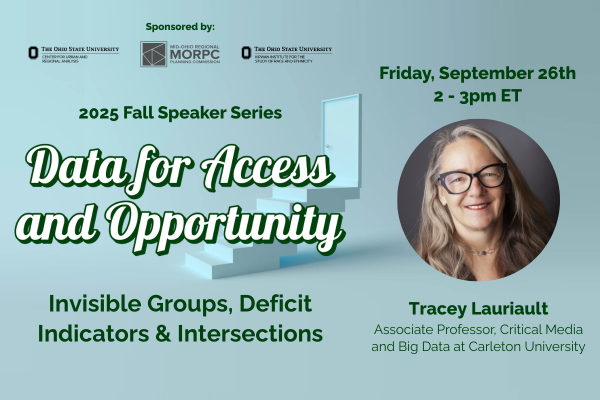
Census, demographic and locally/community collected data assemblages reflect the organizational, institutional and epistemic preferences of data collectors. Data collectors adhere to social and technical processes that are historically, socially, and geographically situated. Concurrently, data analytical processes most often examine parts but not wholes. Data assemblages, collection and analytical processes therefore often make some groups invisible, define others only by their negative traits and are reductive. This talk will focus on critical data studies research about data collection systems, and how this new field and that work intersects with data governance, policy and discursive regimes such as open data, open science and open government.
Tracey P. Lauriault is Associate Professor, Critical Media and Big Data in the School of Journalism and Communication, also Cross Appointed to the MA in Digital Humanities and is Faculty of the Institute for Data Science (CUIDS) and Data Science, Analytics, and Artificial Intelligence (DSAAI) at Carleton University in Ottawa, Canada. Lauriault is a critical data studies scholar who works on open data, big data, open smart cities, open government, data sovereignty, data preservation and data governance. Her ongoing research includes disaggregated equity data, digital twins, intersectional approaches to data governance, data invisibilities and the history of the census. As a publicly engaged scholar, she mobilizes her research into data and technology policy in all sectors. As a data and technological citizen, she examines large and small complex systems with the hope of making them more just, inclusive, equitable and environmentally sustainable.
The Data for Access and Opportunity summer webinar series is co-sponsored by the Center for Urban and Regional Analysis, the Kirwan Institute for the Study of Race and Ethnicity, and the Mid-Ohio Regional Planning Commission.
